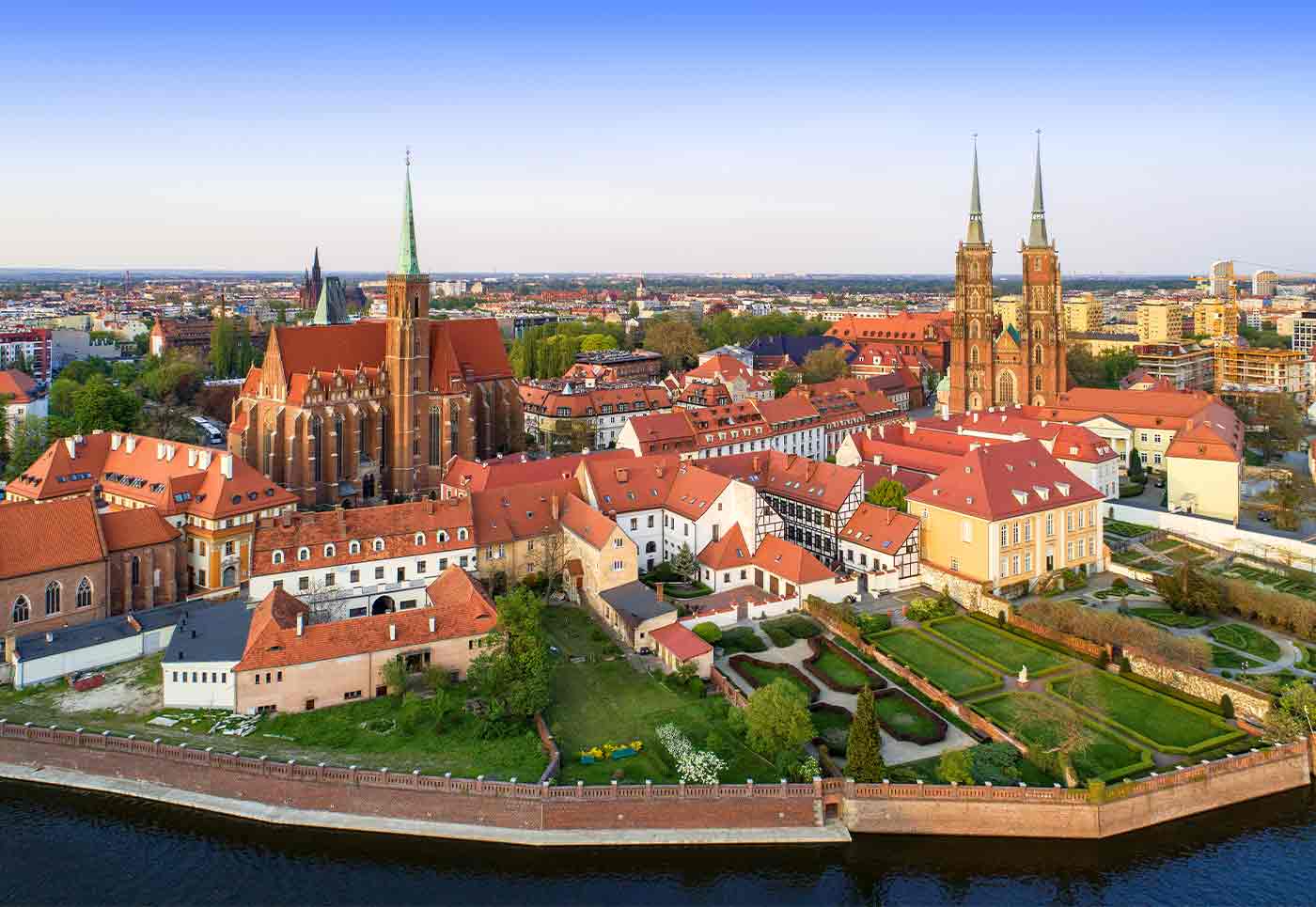
7 things you didn’t know about Poland
Steeped in history, Poland is one of our key markets here at TransferGo. In fact, back in February, it accounted for over a quarter of our transfers in terms of money flow. That’s kind of a big deal.
To celebrate Europe’s ninth largest country, we thought it was high time to shine a light on some fun facts about the place. Here are 7 things you didn’t know about Poland.
It’s home to Europe’s second-oldest university
With a history dating back to prehistoric times, it comes as no surprise that Poland is home to remarkably old sites and buildings. In fact, it boasts the most UNESCO World Heritage Sites in Central Europe. These include the medieval town of Toruń, the Castle of the Teutonic Order in Malbork and of course, Auschwitz-Birkenau.
Remarkably, it’s also home to the second-oldest university in Central Europe. Founded in 1364 by King Casimir III, the Jagiellonian University still teaches today with almost 45,000 students enrolled. Famous alumni include Nicolaus Copernicus, Bronislaw Malinowski and John Paul II. And if you’re wondering who holds the top spot for Central Europe’s oldest university, it’s… Prague. Only by 16 years though.
The Poles love their vodka
Vodka consumption in Poland may be on the wane, but it’s still a huge part of their international trade and drinking culture. Back in the Middle Ages, both peasants and noblemen would produce their own. And today, a whopping 260 million litres of vodka are produced in Poland each year.
If you’d like to imitate the locals next time you visit, don’t expect a vodka cocktail or ask for a mixer. That’s kind of sacrilegious. Instead, gather your friends to share a bottle and drink it neat, chilled and in measurements of 50ml. Brace yourself as things could quickly get messy. In Poland, vodka is always drunk in one gulp or ‘do dna’ (‘to the bottom’). And if you’re visiting somebody’s house, they’ll expect the bottle to be empty before you leave.
Some Polish men like to kiss women on the hands
One of the most traditional greetings in Poland is to kiss a woman on her hand. The practice goes a little like this. The man takes off his hat. He bends to the outstretched hand (but doesn’t pull) and kisses it ever so lightly. Of course, the woman has the choice to politely decline this offer by withdrawing her hand. And if that happens, the man should stop respectfully.
It might not be surprising to learn that this tradition has declined in popularity over the last 100 years. But some women still see it as a huge compliment and consider it the ultimate sign of respect.
Polish is one of the most difficult languages to learn in the world
If you’re trying your hand at learning Polish, you might encounter some difficulties. For English speakers, it’s considered the third most difficult language to learn after Mandarin Chinese and Arabic. With many consonants to a word and seven cases of grammar, many find it difficult to spell and pronounce.
Plus, one word in English can often have 5+ Polish translations making things rather confusing. Don’t despair though. With Polish using a Latin alphabet, most of the letters will still be somewhat familiar to English speakers. Połamania! (‘Good luck!’)
It’s one of the most religious countries in Europe
When asked whether they feel religious in recent surveys, 86% of Poles said yes. This is reasonably high when you consider the fact that only 30% of Brits do. And even more so when you look at the least religious country in Europe, the Czech Republic. In Czechia, 91% of 16 to 29-year-olds say they have no religion at all.
But let’s get back to Poland. The largest religion there is Christianity, with almost 73% aligned with the faith. And of the entire population, 55% consider themselves to be highly religious, with half attending religious services at least once a month.
Polish people marry young
On average, they’re between 25 and 27 years old in fact. This makes Polish people the youngest in any EU country to get married. This is likely due to the country’s conservative approach towards couples living together before they’re wed—in fact, it’s generally discouraged.
And the weddings themselves are traditionally huge affairs. The custom of ‘poprawiny’ (to throw a second party after the first) is hugely popular—Cheers (or ‘Na Zdrowie!’) to that! And if you manage to sustain a marriage in the long term, the government will even reward you. Couples who’ve been married for 50 years receive medals and congratulations from the city clerks.
Many life-changing inventions were discovered by Poles
From the first mini computer to walkie talkies, many technological advancements are due to the work of Polish people. Even the invention of the simple but brilliant paperclip was made by a Polish composer. His name was Józef Hofmann and he designed the shape after being inspired by a treble clef. Who’d have thought it?
In 1897, two Polish inventors went to work on experimenting with anti-bullet chest armour. And what did they come up with? The first commercial bulletproof vest. Just over 25 years later, Leo Gerstenzang, a Pole from Warsaw came up with the cotton swab (or Q tip) after watching his wife use toothpicks and cotton wads to reach hard-to-clean areas.
Other Polish inventions include the Kerosene lamp, windscreen wipers, rubber condom, vitamins and radiation that helps to cure cancer. The Poles are some clever people!
______________
And if you want to make a smart move, send money with TransferGo. Sign up now to send money at high speeds and low fees.
Popular articles
Invite friends to TransferGo, earn £20









